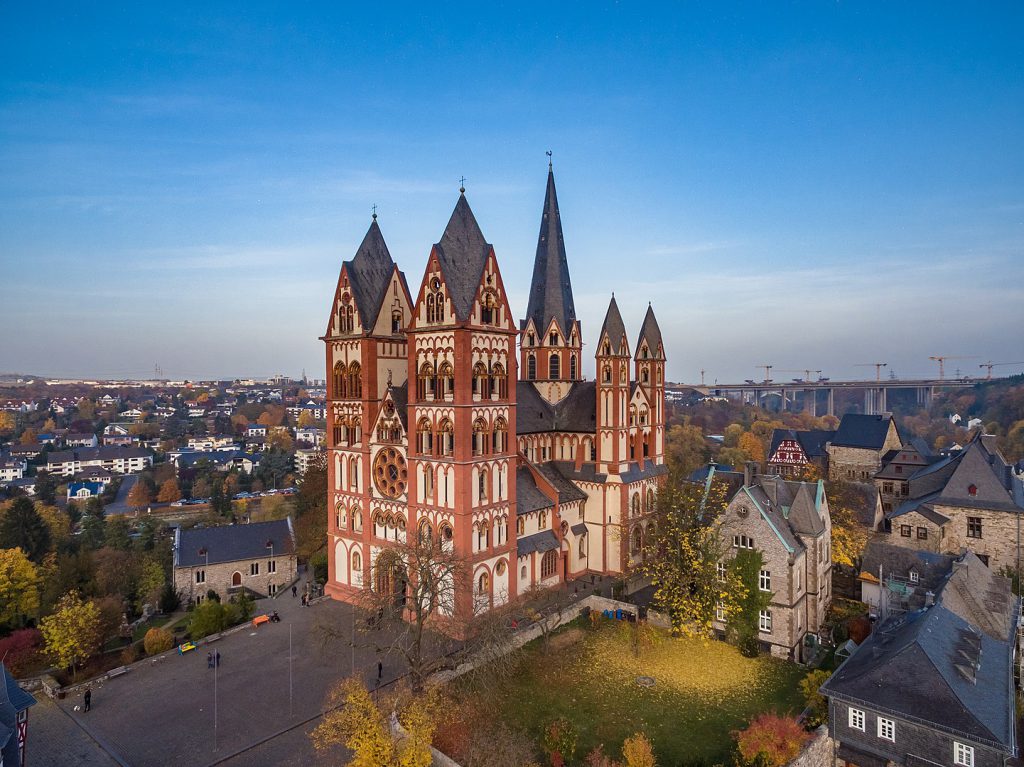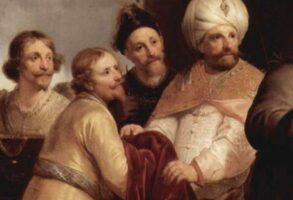
Published May 10, 2021
Editor’s Note: Leading Catholic scholar George Weigel discussed with CNA the “Synodal Way” and recent statements by Bishop Georg Bätzing of Limburg. Below is a transcript of CNA’s conversation with Weigel.
CNA: Bishop Bätzing seems to want to walk a fine line between remaining faithful to Rome while not displeasing those who are already announcing “reforms.” Is there such a middle ground? If so, what would that middle ground realistically look like?
Weigel: The issue is not “Rome” vs. “reforms.” The issue is fidelity to the truth of the Gospel vs. fidelity to the Zeigeist, the “spirit of the times.” Put another way, the issue at stake in the German “synodal way” is whether divine revelation — on the indissolubility of marriage, on worthiness to receive holy communion, on the proper ordering of our human loves — is real and has binding power over time, in every cultural situation. That was also the issue at the Synods of 2014, 2015, and 2018.
CNA: Bishop Bätzing says: “The Synodal Way is striving, particularly with respect to the topic of affective relationships, to discuss in a broad context that also considers the need, possibility, and limits of developing the Church’s magisterium. The perspectives presented by the Congregation for the Doctrine of the Faith will find space in these debates.” Are the CDF’s statements mere “perspectives” that can be debated, or are they the basis for debate?
Weigel: When the CDF speaks authoritatively, as it did in the matter of whether it was possible for the Church to “bless” same-sex relationships, it is not offering a “perspective,” but is speaking for the truth of Catholic faith. If Bishop Bätzing and others in the German hierarchy do not accept those truths, they should have the honesty to say so. If they do accept those truths, they should have the courage to say so.
CNA: Based on the working text, is the characterization of Bishop Bätzing accurate when he says: “The central question is: how can we talk about God today and come to a deeper faith? Faith can grow and deepen if we free ourselves from fears and mental closures, if we ask the questions and look for ways in which the Church today can be present for people.”
Weigel: The “central question” is what the Lord Jesus said it was, is, and always would be: “When the Son of Man returns, will he find faith on earth?” (Luke 18.8). Of course the Church must always speak the truth of the Gospel in ways that can be heard by the people of a given time and culture; that was what St. Paul tried to do on the Areopagus of Athens in Acts 17, and that is what Vatican II instructed the Church today to do: speak the truth in ways that the truth can be heard. The trouble I and many others have when we hear Bishop Bätzing, his like-minded episcopal colleagues, and the Central Committee of German Catholics is that we’re not hearing the voice of the Lord, the Gospel, or the truth, but the voice of post-modernism.
CNA: Would you dispute that there are possibilities for a female diaconate? Can the diaconate be separated from the other degrees of major orders?
Weigel: If the diaconate is not part of a triple-sacerdotium made up of episcopate, presbyterate, and diaconate, then yes, women can be deacons. But if the diaconate is not part of that triple-sacerdotium, then no one pressing for the ordination of women to the diaconate would be interested in the diaconate, because that campaign is a stalking horse for ordaining women to the priesthood and, eventually, the episcopate. It’s a campaign of clericalism, as it seems to imagine that the only Catholics who really count are those in Holy Orders. Vatican II decisively rejected that clericalist ecclesiology.
As a matter of fact, however, I take it to be settled Church teaching that the diaconate as created in Acts 6 is part of the triple-sacerdotium; therefore, the Church has no authority to ordain women to the diaconate, just as it has no authority to ordain women to the priesthood or episcopate. That was definitively settled by John Paul II in Ordinatio Sacerdotalis.
CNA: Do you think this is an accurate take on how Catholic doctrine develops organically? “In Germany and in other parts of the universal Church there has long been a discussion about how to further develop the Magisterium with sound arguments — on the basis of the fundamental truths of faith and morals, the progress of theological reflection, and in a spirit of openness to the latest results of the human sciences and the life situations of people today.”
Weigel: The “fundamental truths of faith and morals” judge “the progress of theological reflection” and “the latest results of the human sciences;” those fundamental truths are not judged by theologians or practitioners of the human sciences. If and when that becomes the case, the result is Liberal Protestantism, and I cannot understand why anyone would want to follow that sad path to ecclesial oblivion. St. John Henry Newman taught the Church that there were seven marks of an authentic development of doctrine. Perhaps a new German edition of Newman’s Essay on the Development of Christian Doctrine is needed?
CNA: What do you believe will be the contributions of the German synod to the Church? How does the Church in Germany influence the world? What ramifications does this have for the Church, both internationally and in the US?
Weigel: The German Church is immensely generous in supporting the work of the Catholic Church throughout the world, and it ought to learn from the experience of, say, the vibrant local Churches of Africa that the Gospel is liberating, not constraining. If the German synodal way continues down the path of apostasy, it will provide a lesson to the entire world Church in what “synodality” is not and cannot be: a matter of deciding the truth of revelation and the contents of the deposit of faith by a “consensus” created by a manipulative ecclesiastical bureaucracy attuned to the Zeitgeist. And that will be an important lesson to consider at the Synod on “synodality” in 2022.
George Weigel is a Distinguished Senior Fellow of the Ethics and Public Policy Center and holds EPPC’s William E. Simon Chair in Catholic Studies.











